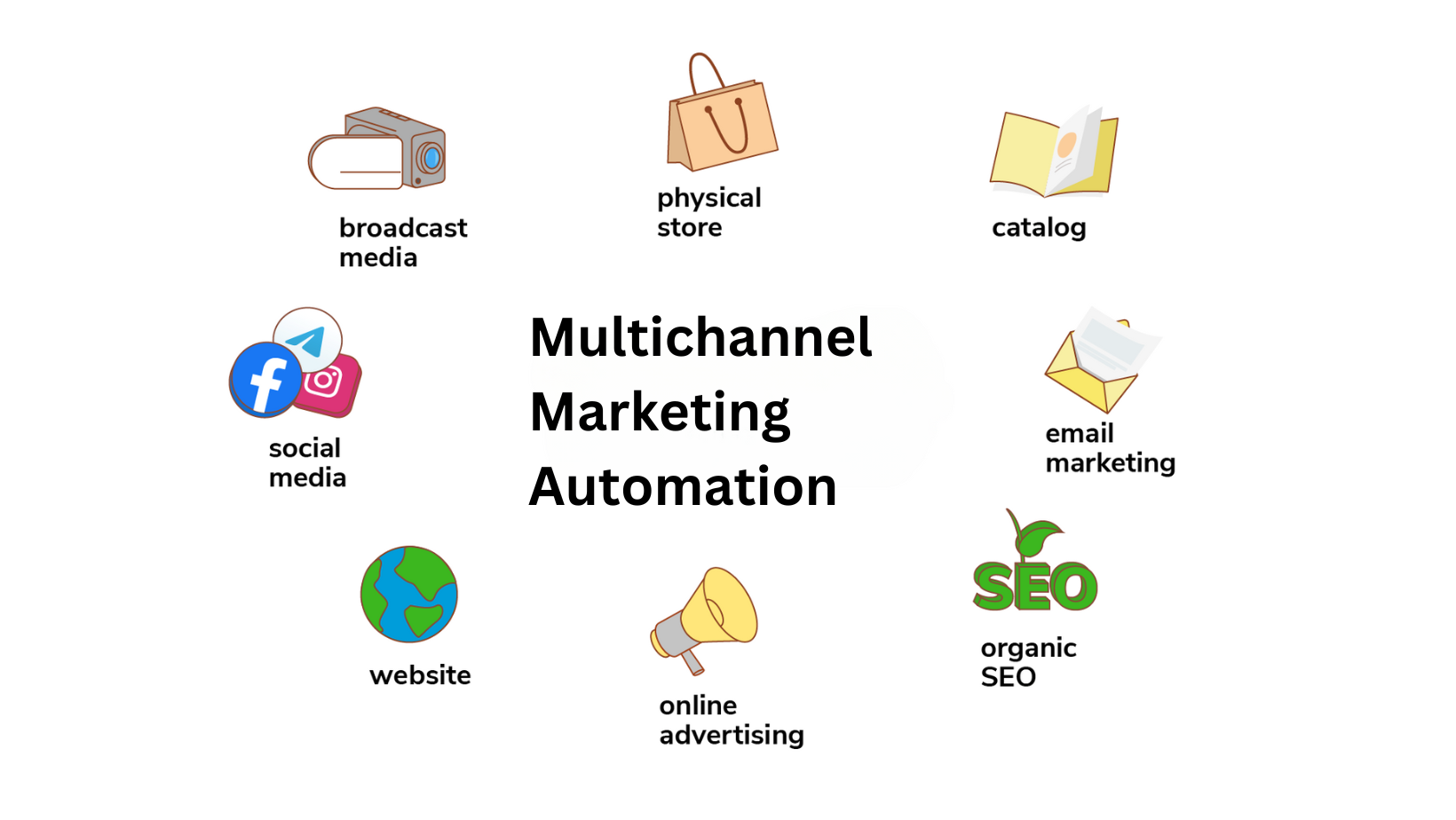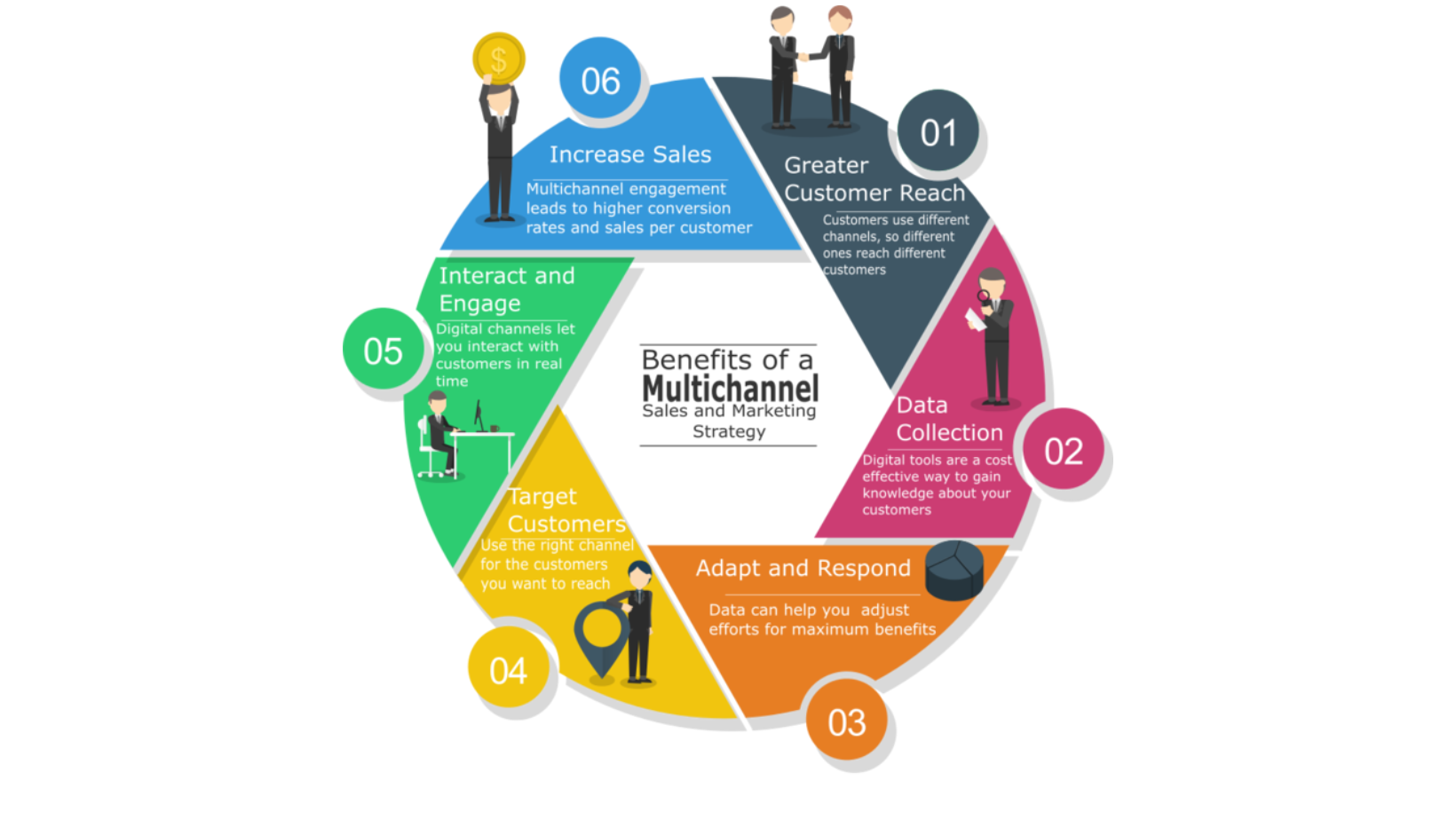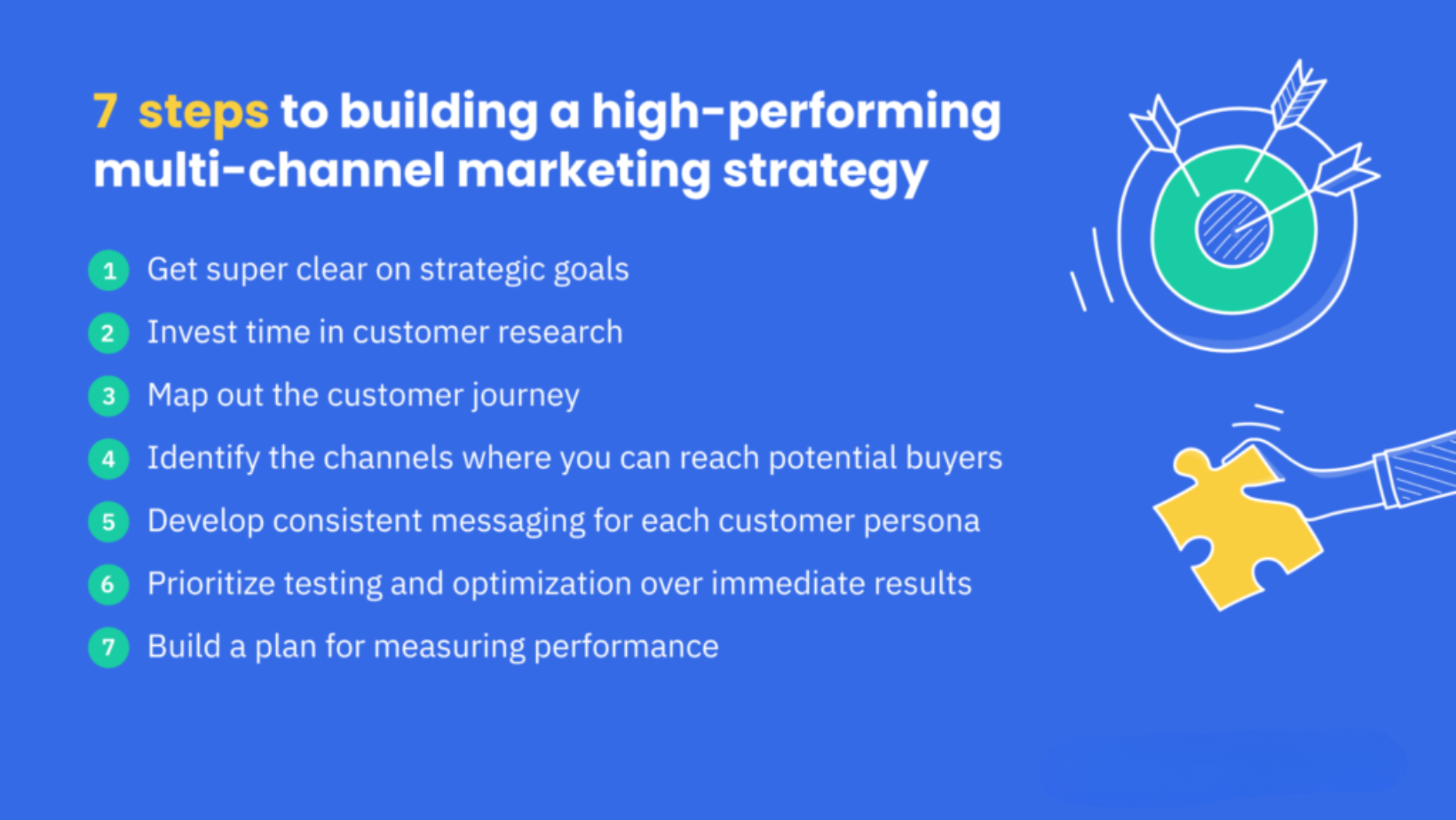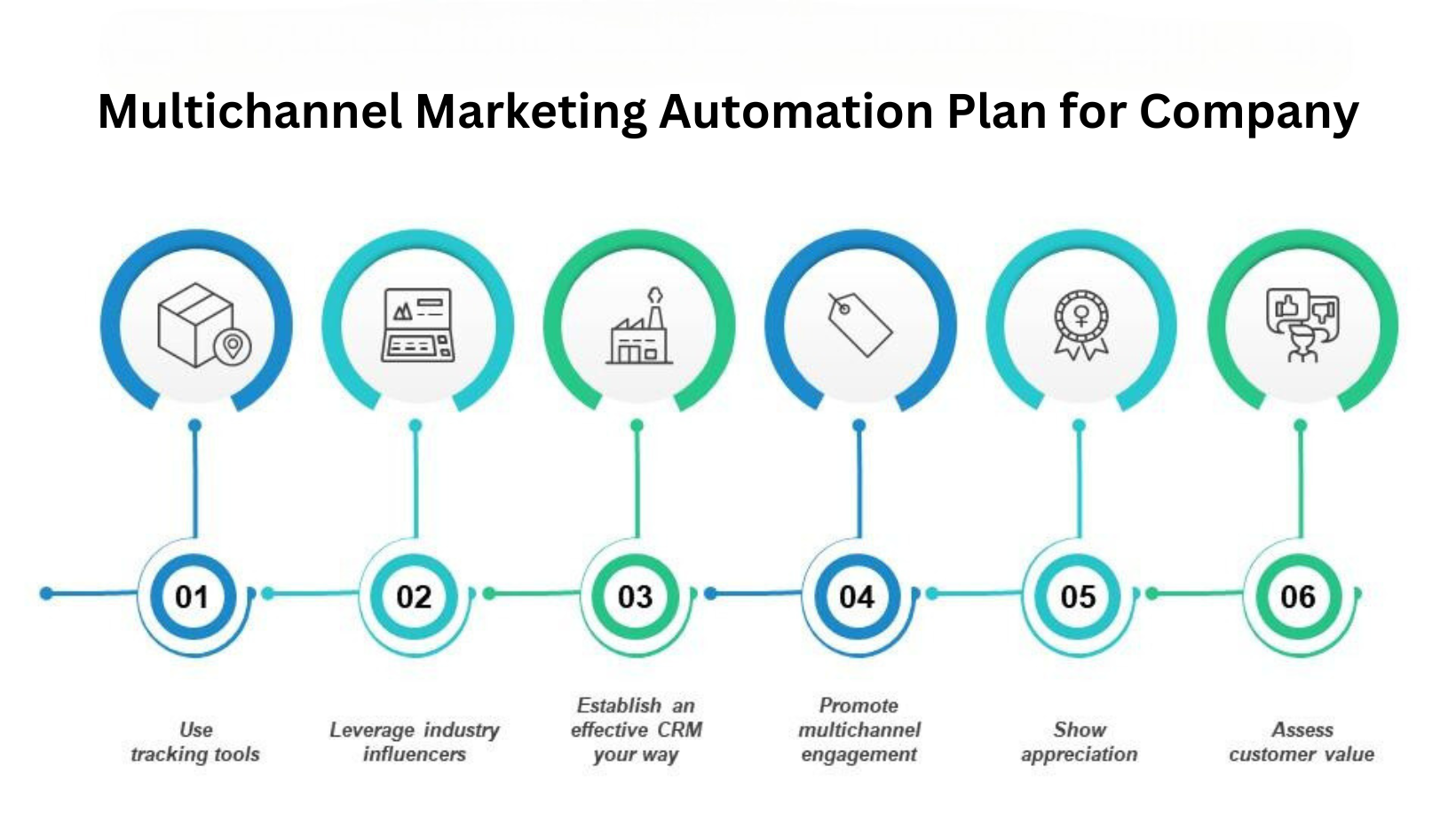The Power of Multichannel Marketing Automation: Strategies and Benefits for Businesses
Introduction to Multichannel Marketing Automation
Multichannel marketing automation has emerged as a powerful tool for businesses to effectively engage with their customers across multiple channels. By automating marketing processes and integrating different channels, companies can create cohesive customer experiences and drive better results. In this article, we will explore the key elements of multichannel marketing automation, the importance of adopting this approach, and its potential benefits for businesses.

Multichannel Marketing Automation
Multichannel marketing automation refers to the use of software and technologies to automate and manage marketing activities across various channels such as email, social media, SMS, website, and more. It streamlines marketing processes, improves customer targeting and personalization, and enables businesses to deliver consistent messaging across different touchpoints.
Key Elements of Multichannel Marketing Automation
There are several key elements that contribute to the success of multichannel marketing automation:
Customer Data Integration: Effective multichannel marketing automation relies on the integration of customer data from different sources to create a unified view of each customer. This allows businesses to personalize their interactions and tailor their marketing efforts accordingly.
Campaign Orchestration: Multichannel marketing automation enables businesses to coordinate and execute campaigns seamlessly across various channels. This ensures that the right message reaches the right audience at the right time, maximizing the impact of marketing efforts.
Automation and Personalization: Automation plays a critical role in multichannel marketing, allowing businesses to deliver personalized experiences at scale. By leveraging customer data and segmentation, companies can automate the delivery of dynamic content based on user behavior, preferences, and demographics.
The Growing Importance of Multichannel Marketing Automation
In today’s digital age, customers interact with businesses through multiple channels. Whether it’s browsing a website, following a brand on social media, or receiving personalized emails, customers expect a seamless experience across all touchpoints. As a result, the adoption of multichannel marketing automation has become increasingly important for businesses to stay competitive and meet customer expectations. By leveraging this approach, companies can improve customer retention, enhance efficiency, and gain valuable insights for better decision-making.
Integration of Channels for Cohesive Customer Experience
One of the key advantages of multichannel marketing automation is the ability to create a unified customer experience. This involves ensuring consistency in brand messaging, tailoring content for each channel, and seamlessly integrating offline and online channels.
Creating a Unified Customer Experience
To create a cohesive customer experience, businesses need to focus on the following aspects:
Consistency in Brand Messaging across Channels: It is crucial for businesses to maintain a consistent brand voice and visual identity across all channels. Whether it’s through emails, social media posts, or website content, customers should perceive a consistent brand identity and message.
Tailoring Content for Each Channel: While consistency is important, it’s equally essential to tailor content for each channel. Different channels have unique characteristics and customer expectations. By adapting content to suit each channel, businesses can maximize engagement and deliver relevant messaging to their audience.
Seamless Integration of Offline and Online Channels: Effective multichannel marketing automation integrates both offline and online channels to provide a seamless customer experience. This can be achieved through strategies such as bridging offline data with online insights, enabling cross-channel interactions, and leveraging customer data to personalize engagements across channels.
Personalization at Scale
Multichannel marketing automation enables businesses to deliver personalized experiences at scale, improving customer engagement and satisfaction. Here are some key strategies for achieving personalization:
Leveraging Customer Data for Personalized Experiences: By integrating customer data from various sources, businesses can gain deeper insights into individual preferences, behaviors, and demographics. This data can be used to create highly targeted and relevant marketing campaigns, fostering a sense of personal connection with customers.
Utilizing Segmentation to Target Specific Audiences: Segmenting the customer base allows businesses to tailor their messaging to specific groups, ensuring that the right content reaches the right audience. By understanding the unique needs and preferences of different customer segments, companies can increase the effectiveness of their marketing campaigns.
Dynamic Content Delivery based on User Behavior: Multichannel marketing automation platforms enable businesses to deliver dynamic content to users based on their behavior and interactions. For example, an e-commerce company can automatically display personalized product recommendations to customers based on their browsing history and purchase behavior.
Managing Cross-Channel Campaigns
Efficient management of cross-channel campaigns is crucial for the success of multichannel marketing automation. Here are some key considerations:
Coordinating Messaging Across Different Channels: Consistency in messaging is vital across all channels to provide a unified customer experience. By ensuring that messages are coordinated and reinforce each other, businesses can create a stronger impact and prevent confusion or mixed messaging.
Automating Campaign Execution and Scheduling: Multichannel marketing automation platforms allow businesses to automate the execution and scheduling of campaigns across different channels. This saves time and resources, enabling marketers to focus on strategy and creativity rather than manual execution.
Tracking and Measuring Campaign Performance: Multichannel marketing automation provides businesses with robust tracking and measurement capabilities. Marketers can analyze campaign performance across different channels, track customer engagement, and gain valuable insights to refine their strategies and optimize future campaigns.
Benefits of Multichannel Marketing Automation
Implementing multichannel marketing automation can bring numerous benefits to businesses, including improved customer retention and loyalty, increased efficiency and cost-effectiveness, and enhanced decision-making and insights.

Improved Customer Retention and Loyalty
Multichannel marketing automation is a powerful tool for building stronger relationships with customers, leading to improved retention and loyalty. Here are some ways it achieves this:
Building Stronger Relationships with Customers: By delivering consistent and personalized experiences across multiple channels, businesses can foster a sense of trust and loyalty among customers. This enhances the overall customer experience and increases the likelihood of repeat purchases and long-term relationships.
Enhancing Customer Satisfaction and Brand Trust: Multichannel marketing automation allows businesses to better understand their customers’ needs and preferences. By addressing these preferences and providing relevant and timely information, companies can enhance customer satisfaction and build brand trust.
Increasing Customer Lifetime Value: Personalized and targeted marketing campaigns, made possible by multichannel marketing automation, can drive increased customer lifetime value. By delivering the right message to the right customer at the right time, businesses can maximize their revenue potential and foster long-term customer relationships.
Increased Efficiency and Cost-Effectiveness
Multichannel marketing automation streamlines marketing processes, reduces manual workloads, and optimizes budget allocation, resulting in increased efficiency and cost-effectiveness. Here’s how it achieves these benefits:
Streamlining Marketing Processes: Automation eliminates the need for manual execution and streamlines marketing processes. This saves time, reduces errors, and allows marketers to focus on strategic activities such as campaign planning, analysis, and optimization.
Reducing Manual Workloads and Errors: Multichannel marketing automation reduces the reliance on manual work, minimizing the chances of errors and ensuring consistency across channels. Marketers can automate repetitive tasks, freeing up time for more impactful activities.
Optimizing Marketing Budget Allocation: With multichannel marketing automation, businesses can gain insights into the performance of different channels and campaigns. This data-driven approach enables marketers to allocate their budget more effectively, investing in channels that deliver the highest ROI.
Enhanced Decision-Making and Insights
Multichannel marketing automation provides businesses with comprehensive data and actionable insights for better decision-making. Here’s how it enhances this aspect:
Gathering and Analyzing Comprehensive Data: Multichannel marketing automation platforms collect and consolidate data from various channels and customer touchpoints. By analyzing this comprehensive data, businesses can gain valuable insights into customer behavior, preferences, and trends.
Deriving Actionable Insights for Better Strategies: The insights generated through multichannel marketing automation can be used to drive better marketing strategies. By understanding customer preferences, effective messaging, and campaign performance, businesses can make data-backed decisions and optimize their marketing efforts.
Real-time Monitoring and Performance Tracking: Multichannel marketing automation enables real-time monitoring and performance tracking of marketing campaigns. Marketers can access key metrics and track the effectiveness of their strategies, enabling them to make immediate adjustments or optimizations as needed.
Implementation and Best Practices
Implementing multichannel marketing automation requires careful consideration and adherence to best practices. Here are some guidelines for a successful implementation:

Selecting the Right Multichannel Marketing Automation Platform
Choosing the right multichannel marketing automation platform is crucial for achieving desired results. Consider the following factors when evaluating platforms:
. Assessing Business Needs and Goals: Understand the specific needs and goals of your business. Identify the features and capabilities that align with your marketing objectives and budget.
Evaluating Platform Features and Integrations: Evaluate the features and integrations offered by different platforms. Ensure that the platform can integrate with your existing systems and supports the channels you utilize to reach your target audience.
Considering Scalability and Flexibility: Choose a platform that can scale with your business and adapt to future needs. Flexibility is key, as marketing requirements may evolve over time. Ensure that the platform allows for customization and growth.
Defining Effective Multichannel Marketing Workflows
For successful multichannel marketing automation, define clear workflows and customer journeys. Consider the following steps:
Mapping Customer Journeys across Channels: Understand your customers’ journeys across different channels. Identify touchpoints and interactions that are critical to their decision-making process. This mapping will help you determine the right messaging and timing for each channel.
Automating Triggered Actions and Campaigns: Automate triggered actions and campaigns based on customer behavior or predefined events. For example, automatically sending a follow-up email to a customer who added items to their shopping cart but didn’t make a purchase.
Monitoring and Continuous Optimization: Continuously monitor and optimize your multichannel marketing campaigns. Analyze the performance of your campaigns and make data-driven adjustments to improve engagement and conversion rates.
Ensuring Compliance and Privacy
In the era of data privacy regulations, it is crucial to ensure compliance and protect customer data. Follow these guidelines:
Adhering to Data Privacy Regulations: Familiarize yourself with applicable data privacy regulations, such as GDPR or CCPA, and ensure that your multichannel marketing automation practices are compliant. Protect customer data and obtain necessary consents.
Obtaining Consent and Managing Preferences: Take proactive measures to obtain and manage customer consent. Offer clear options for customers to indicate their communication preferences across channels and respect their choices.
Maintaining Data Security and Confidentiality: Implement robust data security measures to protect customer data from unauthorized access or breaches. Regularly update security protocols and educate employees about data protection best practices.
Frequently Asked Questions
Multichannel marketing automation improves customer retention by enabling businesses to deliver consistent and personalized experiences across various channels. By understanding individual customer preferences and behaviors, businesses can tailor their messaging and interactions, fostering stronger relationships and loyalty.
Implementing multichannel marketing automation can present challenges such as integrating data from various sources, coordinating messaging across channels, and ensuring compliance with data privacy regulations. It requires careful planning, effective workflows, and a seamless integration of technology and marketing strategies.
Multichannel marketing automation enhances decision-making by providing businesses with comprehensive data and insights. It allows marketers to analyze the performance of different channels and campaigns, understand customer behavior and preferences, and make data-driven decisions for better targeting, messaging, and optimization.
Yes, multichannel marketing automation can be tailored to suit the needs of small businesses. Many multichannel marketing automation platforms offer scalability and flexibility, allowing businesses of all sizes to adopt and benefit from this approach. Small businesses can start with a basic implementation and gradually expand as their needs and resources grow.
When selecting a multichannel marketing automation platform, consider factors such as your business needs and goals, platform features and integrations, scalability and flexibility, ease of use, customer support, and cost. Evaluate platforms based on their alignment with your specific marketing objectives and the channels you utilize to reach your target audience.
Conclusion
multichannel marketing automation empowers businesses to deliver consistent, personalized experiences across various channels, leading to improved customer retention, increased efficiency, and enhanced decision-making. By selecting the right platform, implementing effective workflows, and ensuring compliance, businesses can unlock the true potential of multichannel marketing automation.

